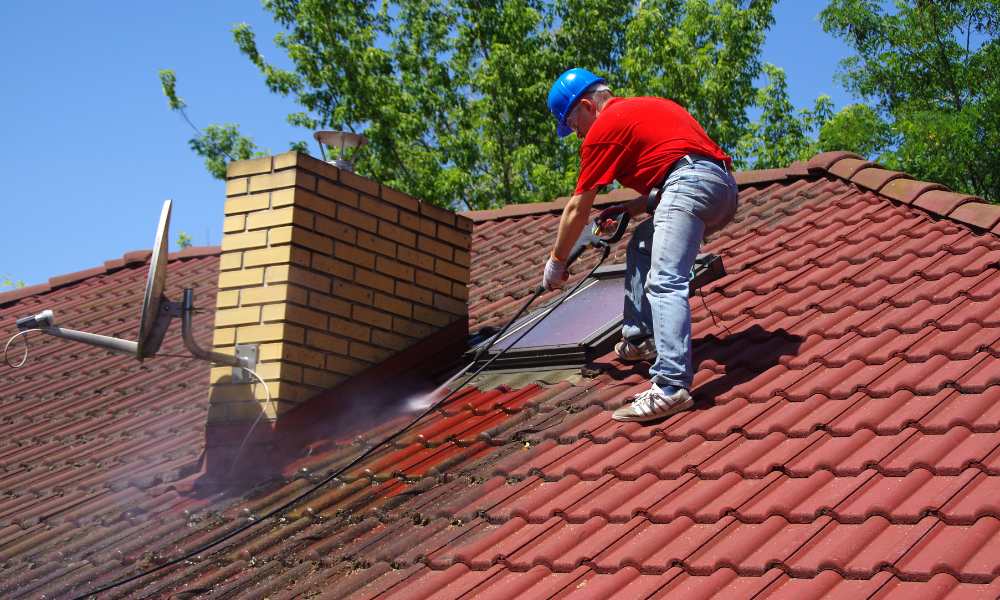Gutters play an essential role in protecting your home from water damage. They are essentially channels that run along the edges of your roof to collect rainwater and direct it away from your foundation. But have you ever wondered what gutters are made of? Gutters can be constructed using various materials, each with its own advantages and disadvantages. In this article, we’ll explore some of the most common materials used to make gutters.
One of the most popular materials used for gutters is aluminum. Aluminum gutters are lightweight and rust-resistant, making them a great choice for many homeowners. They also come in a variety of colors so you can easily match them to your home’s exterior. Another material commonly used for gutters is vinyl. Vinyl gutters are affordable and easy to install but may not be as durable as other materials such as aluminum or copper gutter guards.
What are Gutters?
Gutters are an important part of any building or home, but have you ever wondered what they are made of? Gutters can be made from a variety of materials, each with their own advantages and disadvantages. Some common materials used to make gutters include aluminum, copper, steel, and vinyl.
Aluminum is a popular choice for gutter material because it is lightweight and rust-resistant. It also comes in a wide range of colors to match the exterior of your home. Copper gutters are another option that offer an elegant look and durability. However, they can be more expensive than other materials.
Steel gutters are strong and durable, making them ideal for areas with heavy rainfall or snowfall. They also come in different thicknesses to accommodate different needs. Vinyl is the most affordable option for gutter material and is easy to install without professional help.
How Gutters Function
Gutters are an essential part of any roofing system. They function by collecting rainwater and directing it away from the foundation of a building, preventing structural damage and water accumulation in basements or crawl spaces. But what materials are used to make gutters?
The most common materials used for gutter systems are aluminum, steel, copper, and vinyl. Each material has its pros and cons depending on the climate conditions and budget constraints. Aluminum is a popular choice since it is lightweight, rust-resistant, easy to install, and affordable. Steel gutters can be more durable than aluminum but require regular maintenance to prevent rusting.
Copper gutters provide a classic look that ages beautifully over time while being resistant to corrosion. They are also more expensive than other materials but last much longer with proper care.
Types of Materials Used
Gutters are an essential component of any roofing system, directing water away from the structure to prevent damage. However, not many people know what materials are used to create gutters. There is a range of materials that can be used to make gutters, and each one has its benefits and drawbacks.
Aluminum is the most popular material for gutter production because it is lightweight and easy to install. It also has a long lifespan and can resist rusting or corrosion if correctly maintained. Another popular option is vinyl gutters which are affordable and easy to maintain but have a shorter lifespan compared to other materials. Steel gutters offer durability but need regular maintenance as they tend to corrode over time.
Copper gutters are highly durable and resistant with minimal maintenance required; however, they come at a high price point due to their premium quality.
Advantages/Disadvantages of Each
Gutters are an essential component of any house, especially if you live in an area with heavy rainfall. Gutters help to divert rainwater away from your home’s foundation, preventing water damage and flooding. But have you ever wondered what materials are used to make gutters? There are several options available, each with its own set of advantages and disadvantages.
One popular material for gutters is aluminum. Aluminum gutters are lightweight and easy to install, making them a favorite among DIY enthusiasts. They also don’t rust and come in a variety of colors, allowing homeowners to match their gutter system to the color of their home’s exterior. However, aluminum gutters can dent easily and may not hold up well in areas with extreme weather conditions. Another option for gutter material is PVC or vinyl. This type of gutter is also lightweight and easy to install.
Installation Process
Gutters are an essential component of every home’s exterior. They help to channel rainwater away from the roof and foundation, preventing water damage and other issues that can arise from standing water. But what exactly are gutters made of? Gutters can be made from a variety of materials, including aluminum, steel, copper, and vinyl. Each material has its own advantages and disadvantages when it comes to durability, affordability, and maintenance.
The installation process for gutters varies depending on the material used. Aluminum gutters are typically installed in sections that are joined together with screws or pop rivets. Steel gutters may require welding to ensure a secure fit. Copper gutters are often soldered together at the joints for added strength and durability. Vinyl gutters usually snap together using special connectors that eliminate the need for fasteners or adhesive materials.
Maintenance & Cleaning
Gutters are an essential part of any home’s drainage system. They protect your home by directing rainwater away from the foundation, preventing water damage to your property. Understanding the materials used to make gutters is crucial for maintaining and cleaning them.
The most commonly used material for gutters is aluminum due to its durability, affordability, and lightweight nature. Aluminum gutters can last up to 20 years with proper maintenance and cleaning. Another popular choice is vinyl, which is a cheaper option compared to aluminum but not as durable. Vinyl gutters require frequent cleaning as they tend to accumulate debris easily.
Copper and stainless steel are also materials used in gutter manufacturing but are more expensive options due to their superior quality and longevity.




